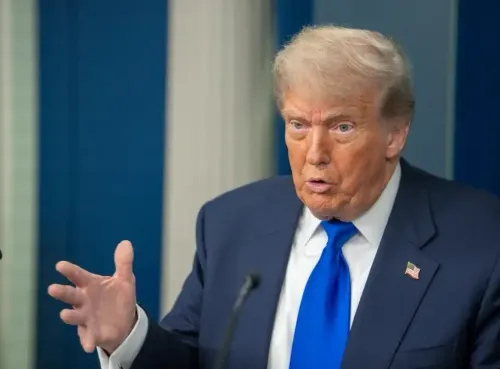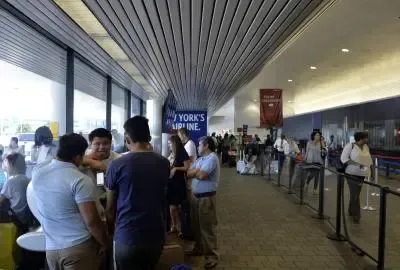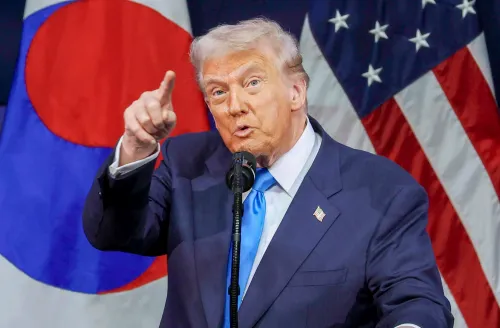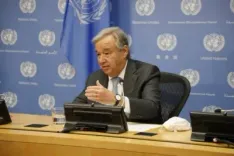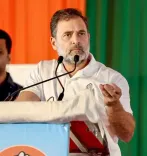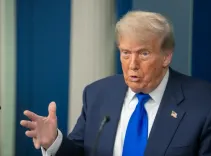Did Bangladesh: Yunus Really Cancel Freedom Fighter Recognition for Bangabandhu?
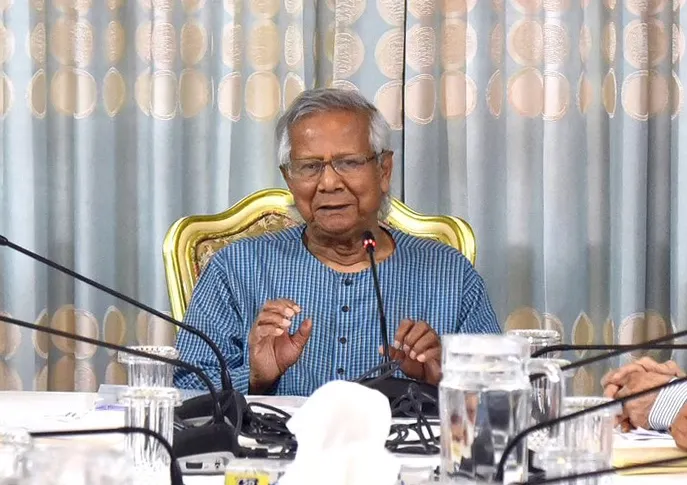
Synopsis
Key Takeaways
- Muhammad Yunus denies claims of revocation of freedom fighter status.
- The new National Freedom Fighters Council Ordinance alters definitions.
- Over 400 individuals, including Bangabandhu, impacted by these changes.
- Government affirms that recognition of Mujibnagar leaders remains intact.
- Historical significance of the Liberation War remains a contentious topic.
Dhaka, June 4 (NationPress) The interim government of Bangladesh, under the leadership of Muhammad Yunus, has refuted claims from local media that it has revoked the recognition of numerous freedom fighters, including Bangabandhu Sheikh Mujibur Rahman, Acting President Syed Nazrul Islam, former Prime Ministers Tajuddin Ahmed, and other leaders from the Mujibnagar government, following the implementation of the National Freedom Fighters Council (JAMUKA) Ordinance.
Major news outlets suggested that this new ordinance redefines the term "freedom fighter" (Bir Muktijoddha), leading to the withdrawal of recognition from Bangabandhu Sheikh Mujibur Rahman and over 400 other prominent figures from the 1971 Liberation War.
Chief Advisor Yunus addressed the situation on social media, labeling the reports about the revocation of freedom fighter status as "fake news".
His office stated, "Claims made by various media sources, including Samakal, Jugantor, Ittefaq, and Kalerkanth regarding the withdrawal of freedom fighter recognition for more than a hundred leaders, including President Sheikh Mujibur Rahman, Acting President Syed Nazrul Islam, Prime Minister Tajuddin Ahmed, and two ministers, Md. Mansur Ali and AHM Kamruzzaman, are entirely unfounded, misleading, and false," the statement read.
Faruk-e-Azam, the Advisor to the Ministry of Liberation War Affairs, emphasized that members of the Mujibnagar government are indeed freedom fighters, while those who fought in the war with arms are classified as such. However, government officials and employees were referred to as "associate freedom fighters".
According to Azam, the new ordinance acknowledges that diplomats, such as those from Swadhin Bangla Betar Kendra, are considered associate freedom fighters. He asserted that this does not diminish their honor, stating that the original definition of freedom fighter from 1972 has been reinstated after changes in 2018 and 2022. The dignity, status, and privileges of both freedom fighters and collaborators of the Liberation War will remain intact.
Azam also confirmed that all members of the Mujibnagar government are recognized as freedom fighters, stating, "The Mujibnagar Government played a pivotal role in the Liberation War. It, along with all officially recognized forces, will be acknowledged as freedom fighters. Auxiliary freedom fighters have not been disrespected, and everyone involved is treated equally regarding state allowances and benefits."
Reports indicated that the ordinance, which modifies the National Freedom Fighters Council Act and redefines freedom fighters, specifies that all Members of the National Assembly (MNAs) and Members of the Provincial Assembly (MPAs) associated with the wartime provisional government of Bangladesh will now be categorized as "associates of the Liberation War" instead of "freedom fighters".
This new classification also includes professionals who contributed to the Liberation War while abroad, as well as individuals who played a significant role in influencing global opinions and those who worked as officials and employees of the Mujibnagar government during the war, including physicians, nurses, and other assistants.
Furthermore, all artists and crew members of Swadhin Bangla Betar Kendra and journalists in Bangladesh and abroad who actively supported the Liberation War and the Swadhin Bangla Football Team will also fall under this new definition.
The ordinance has implications for the status of Bangabandhu Sheikh Mujibur Rahman, former Prime Minister Tajuddin Ahmad, former Acting President Syed Nazrul Islam, and over 400 others previously recognized as freedom fighters.
The ordinance defines the Liberation War as "The conflict waged from March 26 to December 16, 1971, to establish equality, human dignity, and social justice for the people of Bangladesh as an independent democratic state against the invading and occupying Pakistani armed forces and their collaborators -- the Razakars, Al-Badr, Al-Shams, Muslim League, Jamaat-e-Islami, Nezame-Islam, and the Peace Committee."
It defines a Bir Muktijoddha as someone who, between March 26 and December 16, 1971, prepared for war, received training within villages nationwide, or crossed into India for training with the intent to participate in the Liberation War, actively engaging in the fight against the occupying Pakistani forces and their local collaborators.
The newly released ordinance also removes the text "Father of the Nation Bangabandhu Sheikh Mujibur Rahman" and eliminates sections of the law that referenced his name.
Earlier, Yunus had prohibited the Awami League, the party responsible for liberating Bangladesh from Pakistan's oppressive rule advocating democracy, secularism, human rights, and social justice, while simultaneously lifting the ban on Jamaat-e-Islami, which demands "Sharia Law" in Bangladesh.


